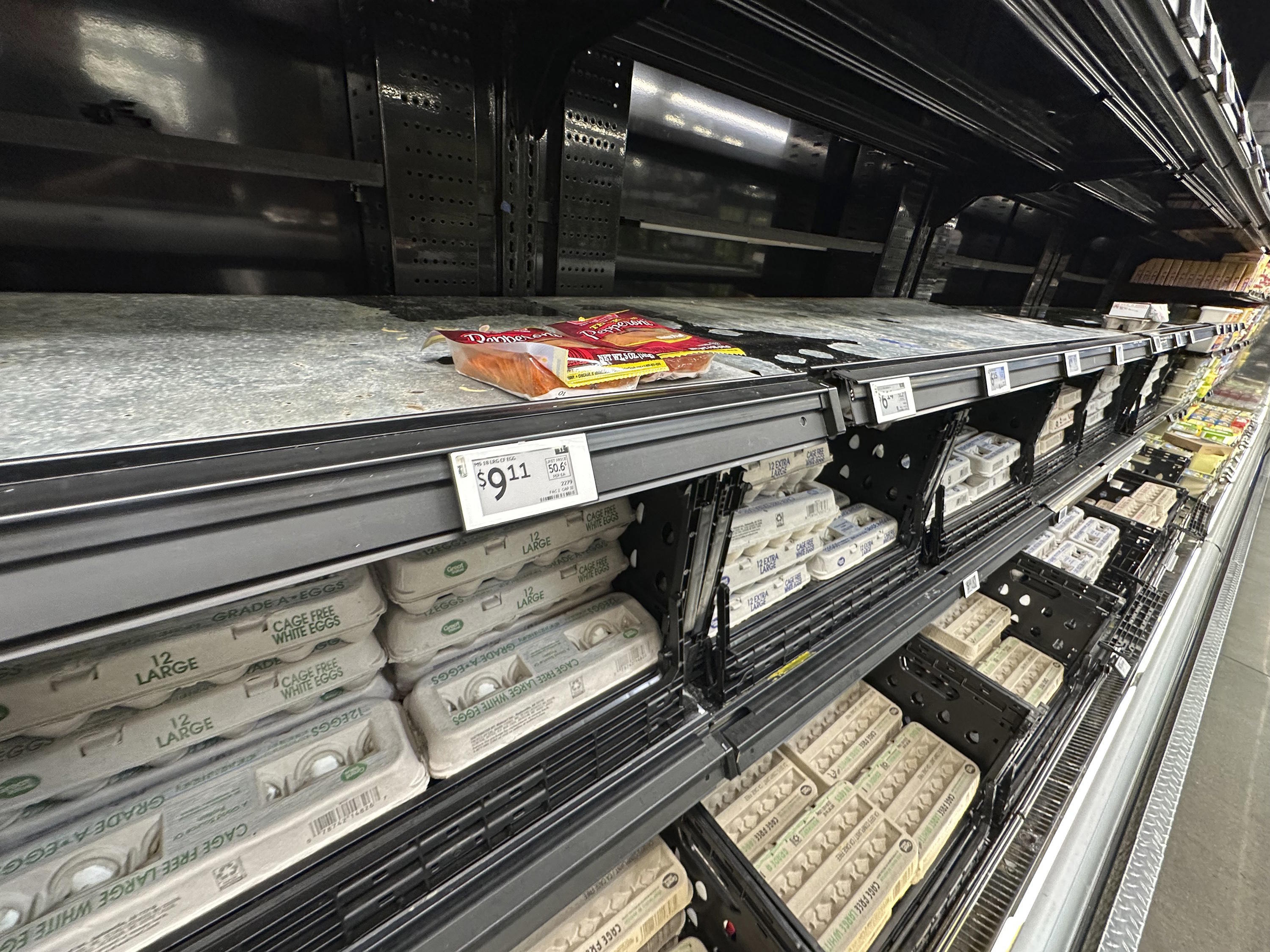Those who have been to the supermarket in recent days may have been surprised to see that the price of one of the most basic foods in the shopping basket, eggs, has risen significantly. A dozen now costs over $2.60 in most chains in our country, compared to $2.19 a year ago at the priciest store. "I was here a week ago, and they were at least 50 cents cheaper," says a consumer, a fact confirmed by a study published by the Organization of Unique Consumers (OCU), which states that egg prices have increased by 25.2% in just two weeks. "This increase particularly affects the cheaper categories," they emphasize.
Consequently, for category M eggs, the cheapest ones, the price of a dozen has risen to $2.60, while just 14 days earlier, they were selling for between $2.07 and $2.10. Large size (L) eggs have also seen an average increase of 15.4%, with even higher variations in free-range eggs (20.2%) and organic eggs (16%), and a more moderate increase of 6.8% in organic eggs.
The question arises as to why the price of this food has skyrocketed in a matter of weeks. The OCU does not attribute this price hike to a specific cause, stating that "the factors behind it are multiple, ranging from increased consumption to the effects of avian influenza in the United States." This view is shared by the Spanish Federation of Egg and Egg Product Production Companies (Federovo). Its director, Mari Luz de Santos, asserts that "eggs, due to their nutritional characteristics, are trending," which has also led to increased consumption in recent years. In fact, "in 2023, it was the food item that grew the most in value among all fresh foods, with a total growth of 8.2%." The Association of Consumers Specialized in Financial User Protection (Asufín) points out that "it is a highly stressed product" because, despite a significant increase in demand in recent years, the supply has remained stable. They highlight that "now, with avian influenza affecting several EU countries, exports may increase, further driving up prices."
The avian influenza outbreak in the United States over the past year has led to the culling of over 50 million laying hens on farms, forcing the country to source this essential food from third countries. As industry sources warn, "there is no substitute for it."
"Spain exports 20% of its production, although it barely exports to the United States," explains De Santos, "but ultimately, eggs are moved around precisely for that reason, to meet those peaks in demand." However, David Sueiro, who runs a small poultry farm in Galicia, reveals that in recent weeks, he has been receiving calls from countries like Israel or Dubai "to buy cheaper eggs and send them to the US." This situation is "depleting our farms."
Sueiro recalls that the situation dates back to the outbreak of the Ukrainian war. "It greatly reduced chicken production in Central Europe," he states. "The price of grain rose so much that many farms had to close, impacting egg production, which declined." Then came inflation, rising production costs, and now, "with Trump's tariffs and avian influenza, the situation has worsened significantly," warning that "it's going to get very complicated." In Spain, "no eggs are imported, and now the eggs produced here are being sent to the US," leading to the price surge, he affirms. Not only due to exports, "the price of grain and soy will suffocate farms, and eggs will end up becoming a luxury item."
